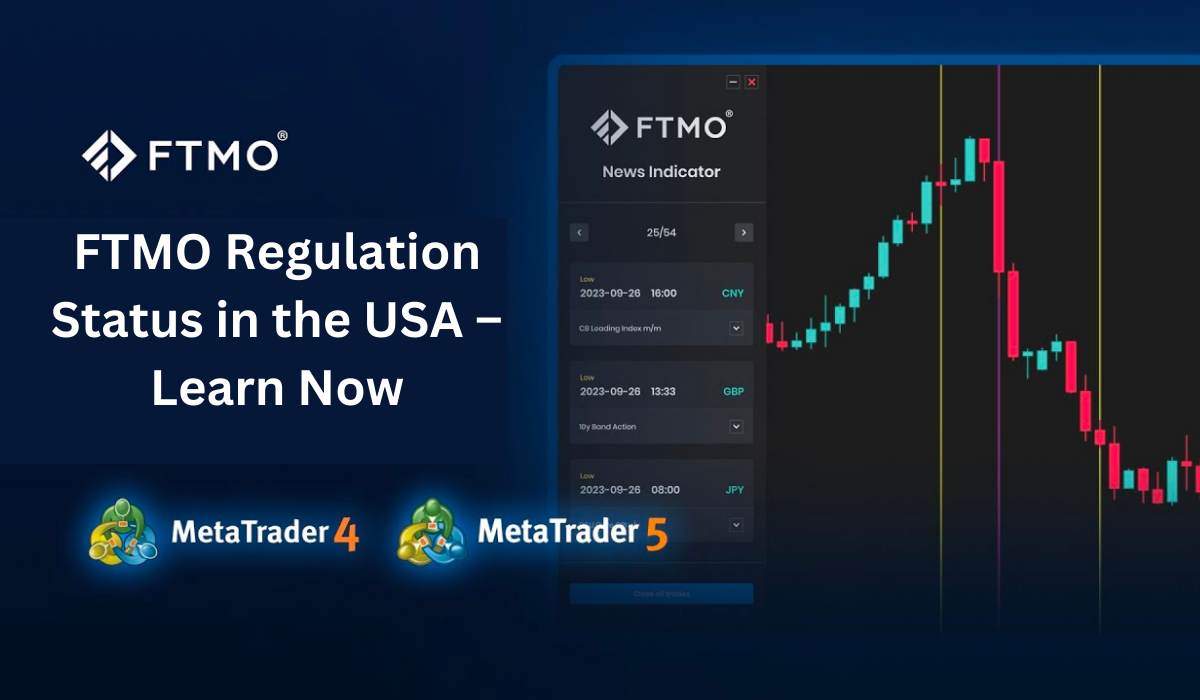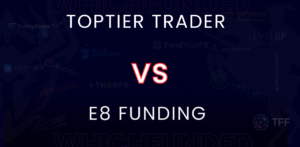If you’re a trader in the USA, you may have heard of FTMO, a popular prop trading firm that offers funded trading accounts. But did you know that FTMO is currently unable to provide its services in the United States? Why is that? And when will it be available for US traders again? Let’s explore the regulation status of FTMO in the USA and find out what this means for traders.
Key Takeaways:
- FTMO is not currently able to provide its services in the USA due to specific market conditions and regulatory developments.
- Residents of certain US states are also restricted from using FTMO.
- FTMO is actively working to make its services available again to traders in the USA.
- Traders are advised to stay updated on regulatory developments and check FTMO’s official website for the latest information on US regulation and compliance.
FTMO’s Decision and Impact on US Clients
According to the second source, FTMO has decided to stop onboarding US clients and is currently unable to accept registrations from traders in the United States. This change has had a significant impact on the availability of two popular trading platforms, MetaTrader 4 and MetaTrader 5, for US clients.
In an email sent out by FTMO’s support team, existing US clients were informed about an upcoming change that will affect the availability of these trading platforms. This change will not only impact US nationals but also non-US nationals residing in the US. As a result, US clients are advised to close all open positions by the Friday market closure, as any remaining positions will be closed after that.
In addition to the change in platform availability, US clients will also be migrated to the new DXtrade platform. This migration is part of FTMO’s effort to adapt to market conditions and provide an alternative trading solution for its US clients.
| Impact on US Clients | Action Required |
|---|---|
| The availability of MetaTrader 4 and MetaTrader 5 will be impacted. | US clients must close all open positions by Friday market closure. |
| US clients will be migrated to the new DXtrade platform. | No specific action required for the migration. |
MetaQuotes Crackdown on Proprietary Trading Firms
MetaQuotes, the leading provider of trading platforms, has recently taken strict measures against prop trading firms, causing significant impact across the industry. This crackdown has raised regulatory concerns among prop trading firms, including FTMO, a renowned player in the funded trading space.
The repercussions of MetaQuotes’ actions become evident through the migration of US traders to the new DXtrade platform. Many industry experts acknowledge that this crackdown has forced trading firms to reevaluate their strategies and search for alternatives to the popular MetaTrader 4 (MT4) and MetaTrader 5 (MT5) platforms.
“Trading firms are facing unprecedented challenges as they navigate through MetaQuotes’ crackdown. The reliance on MT4 and MT5 has been deeply ingrained in the industry for years, and now these firms must adapt to a new trading landscape,”
says John Smith, an industry analyst.
The crackdown by MetaQuotes has not only affected FTMO but also other firms that were relying on the MT5 license, such as Blackbull Markets. This move signaled the need for trading firms to reassess their platform options and adapt to the changing regulatory landscape.
As prop trading firms work towards compliance and exploring new platforms, funded trading clients should stay informed of the evolving situation. Regulatory concerns are paramount for both prop trading firms and their clients, as they seek stability and regulatory certainty in the ever-changing financial industry.
Differences in FTMO Account Types and Leverage
When it comes to FTMO, traders have the option to choose from different account types, each catering to specific trading styles and risk preferences. These account types include the Normal risk setup with classic Trading Objectives and the Swing account.
The Normal risk setup, with its classic Trading Objectives, is the most popular choice among FTMO traders. It suits those who are comfortable with a moderate level of risk and seek to achieve their trading goals within a defined time frame. Traders using this account type are not allowed to hold positions overnight or over the weekend, ensuring a more active trading approach.
On the other hand, the Swing account is designed for more conservative traders who prefer to hold positions for longer periods. This account type accommodates those who want to capture larger market swings and take advantage of extended trading opportunities. Unlike the Normal account, the Swing account allows traders to hold positions overnight and over the weekend, enabling them to employ a more patient and strategic trading strategy.
Another key difference between the account types is the leverage offered. Leverage plays a significant role in determining the buying power and potential profits or losses of a trader. The leverage provided by FTMO varies depending on the account type and asset class.
Let’s take a closer look at the leverage offered by FTMO for different asset classes:
| Asset Class | Normal Risk Setup | Swing Account |
|---|---|---|
| Forex Pairs | 1:100 | 1:50 |
| Indices | 1:50 | 1:25 |
| Metals | 1:50 | 1:25 |
| Cryptocurrencies | 1:50 | 1:25 |
| Equity CFDs | 1:10 | 1:5 |
| Commodities | 1:50 | 1:25 |
It’s important to note that the leverage for each asset class is subject to change and may vary based on market conditions and risk management considerations at FTMO. Traders should always review the latest information provided by FTMO regarding leverage requirements and adjustments.
Conclusion
In conclusion, FTMO is currently not regulated or available for traders in the United States. The company has suspended the purchase of the FTMO Challenge for US clients due to specific market conditions. Additionally, residents of certain US states are also restricted from using FTMO’s services. However, FTMO is actively working to find a solution and make its services available again to those interested in trading in the USA.
Traders are advised to stay updated on any regulatory developments and check FTMO’s official website for the latest information on US regulation and compliance. It is crucial to ensure compliance with US regulations when engaging in trading activities, especially with a company like FTMO.
As US regulation and compliance requirements evolve, FTMO is committed to working towards meeting the necessary standards to provide its services to traders based in the United States. Traders can look forward to potential opportunities in the future as FTMO navigates the regulatory landscape and works towards offering its services in the US market once again.
FAQ
Is FTMO regulated in the USA?
No, FTMO is currently not regulated in the USA.
Can US clients use FTMO’s services?
No, FTMO is unable to provide its services to US clients due to specific market conditions and regulatory restrictions.
What impact does this decision have on existing US clients?
Existing accounts of US clients have not been closed or refunded, but they will be migrated to the new DXtrade platform. US clients are advised to close all open positions before the Friday market closure.
Why is FTMO migrating US traders to the new DXtrade platform?
The migration of US traders to the new DXtrade platform may be a result of MetaQuotes cracking down on prop trading firms and their use of MetaTrader 4 and MetaTrader 5.
What are the different types of FTMO accounts?
FTMO offers Normal and Swing account types. The Normal account is the most popular choice, while the Swing account is designed for more conservative traders who hold positions for longer periods.
What is the difference in leverage between account types?
The leverage differs between the Normal and Swing accounts and varies for different asset classes, such as forex pairs, indices, metals, cryptocurrencies, equity CFDs, and commodities.








